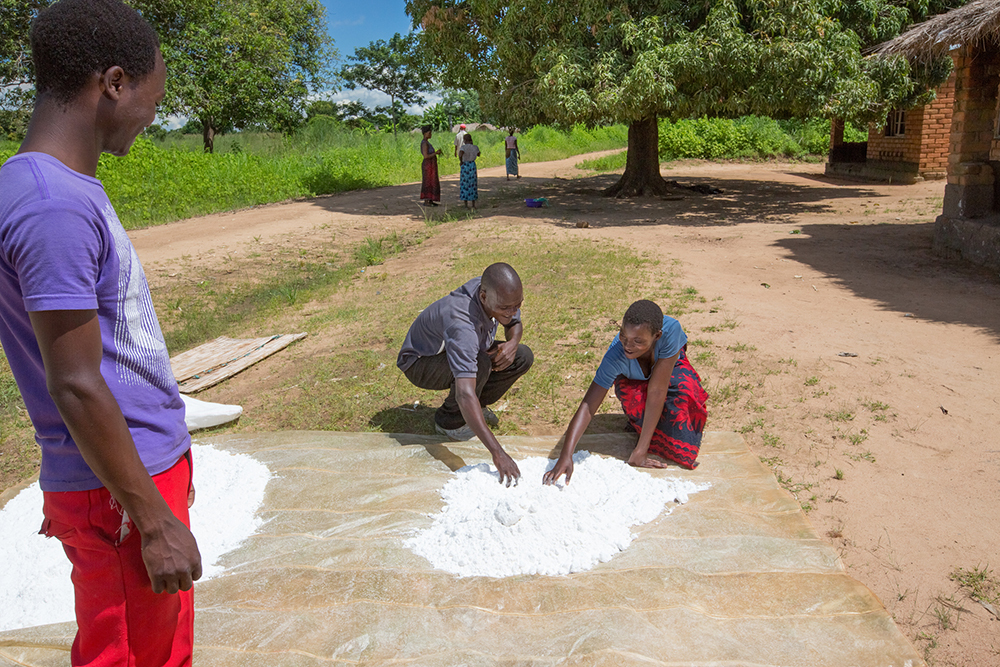In memory of his sister, who died from AIDS-related causes as a child, Seleman Chiopera, now works as a peer educator to other men in his community so that they support their wives during pregnancy and beyond.
Seventeen years ago, when Seleman Chiopera was a child in rural Malawi, his sister became sick from a mysterious, wasting condition, and she eventually died. The family did not know the cause at the time, but Seleman later learned more about HIV and realized that his sister had been infected. HIV is a continuing concern for Seleman: His brother is now living with the virus and struggles to adhere to treatment. These personal encounters with the HIV have motivated Seleman to prevent the transmission of the virus to other children.
To that end, Seleman has been trained as a “male champion,” a local leader who advocates for prevention of mother-to-child transmission of HIV (PMTCT). In that role, he is a peer educator for the Foundation for Community and Capacity Development (FOCCAD), a community-based organization in Malawi supported by the Elizabeth Glaser Pediatric AIDS Foundation (EGPAF), with funding through ViiV Healthcare.
Seleman primarily focuses on promoting male involvement in family health and encouraging men to be model husbands. This starts in the home, but extends to being tested for HIV alongside their wives and going together to the health center for antenatal care. Seleman advises his peers that pregnancy and PMTCT are matters best met by a unified couple.
“Until not that long ago, when women tested positive [for HIV/AIDS], many found themselves deserted,” Seleman explains—even during pregnancy.
Seleman stresses that male involvement training has significantly changed how people in his community live as couples: “Sexuality and the need to negotiate sexual intercourse can now be spoken about openly; we also talk about collective HIV testing and counseling and encourage men to take a more active role in domestic work, particularly during the PMTCT process.”
“In my own life, I have strived to be a model husband.”
Seleman is dedicated to the mission of getting to the goal of zero new infections in children in his community so that children like his sister grow up AIDS-free. Many women are already doing their part by seeking care and treatment, especially during breastfeeding and pregnancy. He is telling his male peer that they need to do their part, too.
The U.S. President’s Emergency Plan for AIDS Relief (PEPFAR) and the World Health Organization (WHO) promote male involvement in family health as a crucial component to ending the HIV epidemic. Studies have shown that male involvement in PMTCT and other family planning activities can reduce the risks of vertical HIV transmission (mother-to-child) and infant mortality by more than 40 percent.




